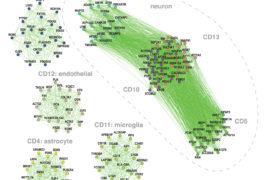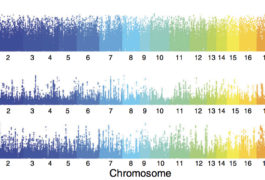Large U.K. database reveals links between genes and brain function
A newly expanded database of information from people in the United Kingdom provides a detailed picture of genetic diversity.

A newly expanded database of information from people in the United Kingdom provides a detailed picture of genetic diversity.

The largest genetic analysis of postmortem brain tissue to date has yielded maps of when and where genes related to autism are turned on and off throughout life.

In autism research, as in other fields, small sample sizes can lead to false findings. The size of the sample needed for statistical significance depends on the type of study.

Genetic variants across the genome contribute to about 8 percent of the risk for certain developmental conditions — much more than previously thought.
Autism and intelligence share genetic variants, researchers grow Neanderthal mini-brains and see overlap with autism, and maternal diabetes is an autism risk factor.

Gene expression patterns in the brains of people with autism are similar to those of people who have schizophrenia or bipolar disorder.
Common genetics may help forge social ties, a nonspeaking woman with autism hosts “The Late Show,” and the mix of bacteria in the gut may relate to brain structure.
The agency that oversees the drug approval process in Europe is moving to Amsterdam, gene editing gets its first human trial, and a tiny sensor detects even a few oxytocin molecules in blood.

Two new resources catalog how genetic variants affect gene expression in the brain.

Autism runs in families, but the search for inherited risk factors has come up short — until now.